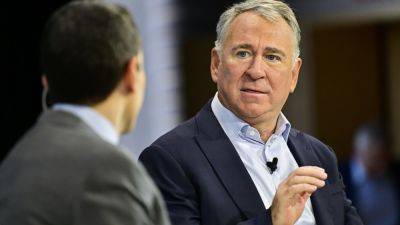Mortgage rates aren't likely to fall any time soon — here’s why
Mortgage rates have risen in recent months, even as the Federal Reserve has cut interest rates.
While those opposing movements may seem counterintuitive, they're due to market forces that seem unlikely to ease much in the near term, according to economists and other finance experts.
That may leave prospective homebuyers with a tough choice. They can either delay their home purchase or forge ahead with current mortgage rates. The latter option is complicated by elevated home prices, experts said.
«If what you're hoping or wishing for is an interest rate at 4%, or housing prices to drop 20%, I personally don't think either one of those things is remotely likely in the near term,» said Lee Baker, a certified financial planner based in Atlanta and a member of CNBC's Financial Advisor Council.
Rates for a 30-year fixed mortgage jumped above 7% during the week ended Jan. 16, according to Freddie Mac. They've risen gradually since late September, when they had touched a recent low near 6%.
Current rates represent a bit of whiplash for consumers, who were paying less than 3% for a 30-year fixed mortgage as recently as November 2021, before the Fed raised borrowing costs sharply to tame high U.S. inflation.
«Anything over 7%, the market is dead,» said Mark Zandi, chief economist at Moody's. «No one is going to buy.»
Mortgage rates need to get closer to 6% or below to «see the housing market come back to life,» he said.
The financial calculus shows why: Consumers with a 30-year, $300,000 fixed mortgage at 5% would pay about $1,610 a month in principal and interest, according to a Bankrate analysis. They'd pay about $1,996 — roughly $400 more a month — at 7%, it said.
Meanwhile, the Fed began cutting interest rates in September as
Read more on cnbc.com
 cnbc.com
cnbc.com
















